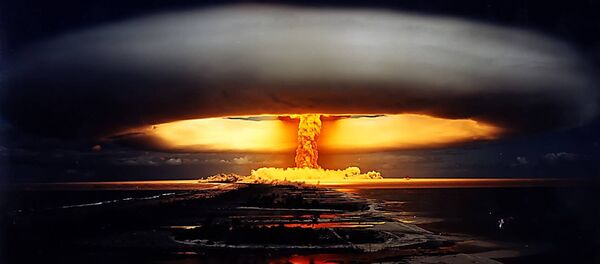In the wake of the fierce debates surrounding the Iranian nuclear program, there is almost no talk about the fact that the US administration and its Western partners did not even try to urge Tehran to back down from threatening to destroy Israel. Its tactics resemble the "divide and conquer" methodology which was used by the British rulers during the early 20th century, when Israel, then known as Mandatory Palestine, was a protectorate of the United Kingdom. It is clear that Washington had no interest in returning relations between Jerusalem and Tehran to the good old days when the two countries were close strategic partners.
The Iranian government was not even obliged to stop supporting the radically militant organizations Hamas and Hezbollah. Instead, they engaged in talks about non-existing Iranian nuclear weapons.
Ironically, last week respected Israeli analyst Ran Edelist revealed some new details about the discussions in the Israeli cabinet regarding a possible military operation to annihilate the Iranian nuclear facilities. According to his information, Iran gave up its military nuclear project several years ago and no new intelligence data could disavow it.
In other words, Tehran decided to halt its prestigious nuclear weapons program. Why would it do so? Since when did Iran's economy matter more than the military strength of the ayatollahs?
It looks like Israel and Iran will be the leading forces in the Middle East during the next decade.
The concerns of the Saudis and their allies regarding the US switch was so sincere and genuine, that there are signs of contacts with Israel on different levels and even friendly articles regarding Israel in the Gulf states press.
This unusual picture of the new Middle East leaves many experts far behind the real events. Although Iran is vulnerable to the new oil price environment, the sanctions forced Tehran to strengthen its local industry and not to rely upon oil and gas sales alone.
Interestingly enough, the sanctions against Iran can be perceived today as having been an important catalyst to the development of the country. We can also conclude today that the sanctions against Russia have not harmed the country as much as some ill-wishers had hoped. Although the huge machine of Russian industry is moving slowly in the direction of restructuring, the sanctions have made Moscow more aware of the need to introduce changes to the existing system. Russia was better prepared for the new reality of low oil prices because of discriminatory sanctions. The ability of Russia to keep running in the new political and economic environment is going to be tested now, but it looks like Moscow is going to make it.
Whatever the outcome of the new US policy in the Middle East is, we see with growing clarity a tendency of intellect and high-tech becoming more significant while energy production becomes cheaper and cheaper. Oil and gas will remain important commodities, of course, but they will be as common as coal is today.
We can only wonder: if we have really entered the age of intellect, why have the political leaders failed to learn from their own mistakes in the past?
They could have learned from the effect of past sanctions against different countries that they are a double-edged sword. Instead they keep trying again and get swallowed by their own intellectually indefensible double standards.




